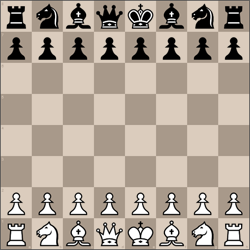July 10, 1976
The Gazette, Montreal, Quebec, Canada, Saturday, July 10, 1976
Our Yesterdays
One hundred years ago, Henry Edward Bird (1830-1908). English master, visited Montreal, the first player of repute to do so. He came up here after taking part in the USA Centennial tournaments at Philadelphia and New York in 1876. J. Mason won at Philadelphia with Bird, third. Famous for his eccentric style he is remembered to-day by such offbeat ideas as Bird's Opening (1. P-KB4) and Bird's Defence in the Ruy Lopez (1. P-K4, P-K4; 2. N-KB3, N-QB3; 3.B-N5, N-Q5). Yet even in these times they are occasionally used in master-play, largely for the surprise element. The middle-game was treated in the same manner, aimed at creating a quagmire of complexities that would engulf his opponent. Although generally outclassed by the world champions of his time, Anderssen, Morphy, Steinitz and Lasker, he had victories over all of them. In 1867 Steinitz could only beat him by 7 to 6, with 6 draws. Strictly an amateur, he could afford to play for the bloody fun of it, and every time he sat down a crowd quickly gathered, for the expected gore.
An accountant by profession he rose to a partnership in an important firm and his book on railway finance “An Analysis of Railways in the United Kingdom” (1866), was a standard work on the subject for years. On chess he wrote four books, the most valuable of which is “Chess Masterpieces” (1875), a selection of 150 master-games up to that year. His big-time activity stretched from London, 1851, to London, 1899 (including Hastings, 1895). Richard Teichman, the German master, when asked to say something about Bird's chess-playing ability for an obituary notice, remarked, “Same as his health. Always alternating between being dangerously ill and being dangerously well. England will not see his like again.” From the London, 1867 match:
Henry Edward Bird (white) vs. Wilhelm Steinitz (black)
Ruy Lopez: Berlin Defense
























